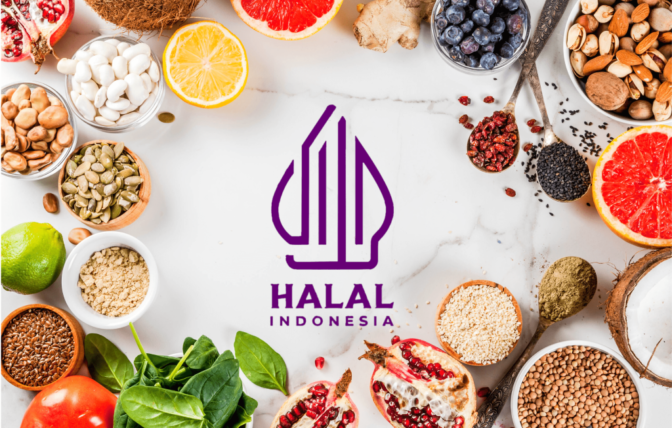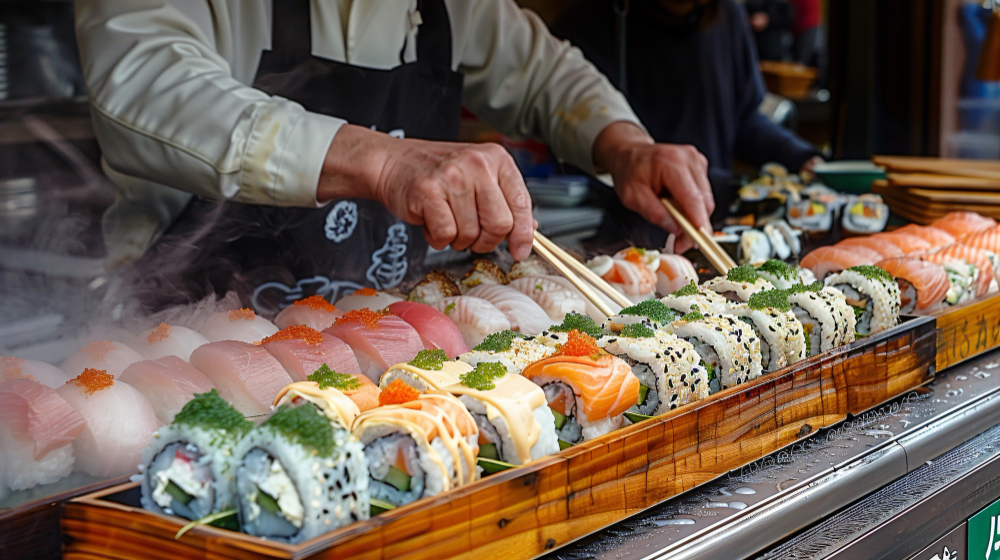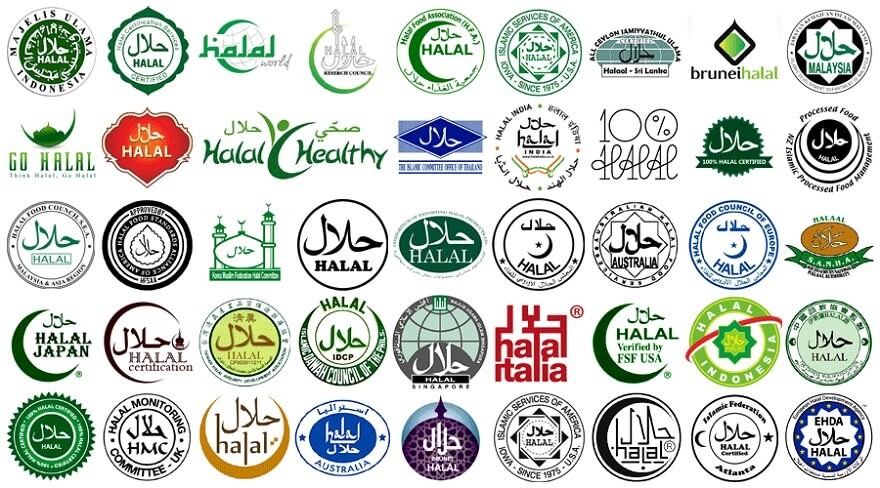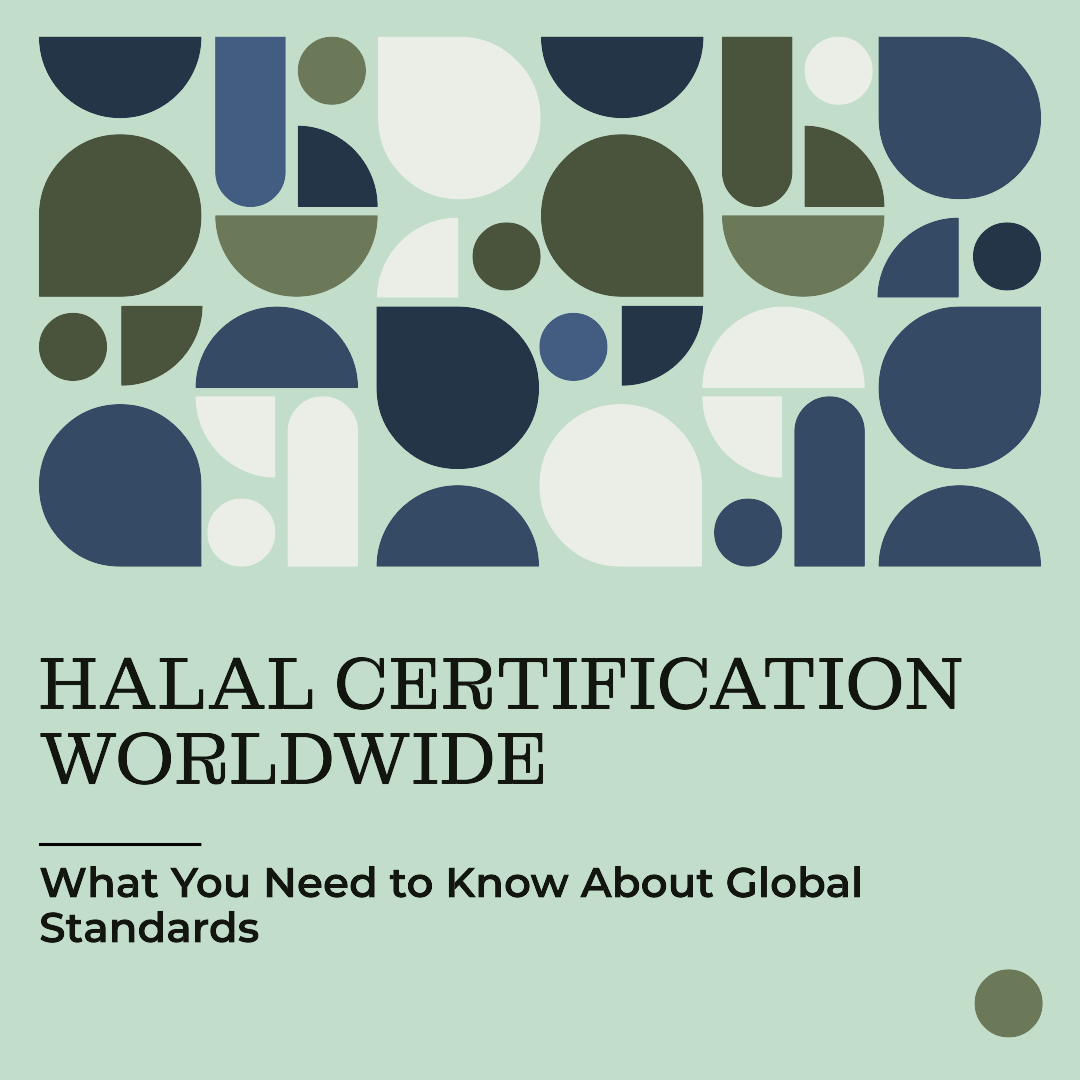Navigating the world of Halal certification can be complex, especially when considering the variations in standards and practices across different countries. As a seasoned expert in Halal regulation, I’ve seen firsthand how these differences impact businesses and consumers alike. In this comprehensive guide, we’ll delve into the global landscape of Halal certification, comparing processes in various countries to help you understand the intricacies and ensure compliance no matter where you operate.
Understanding Halal Certification
Halal certification is a process that ensures products and services comply with Islamic dietary laws. This involves rigorous checks and audits to confirm that no haram (prohibited) substances are used and that ethical practices are followed throughout the production process. While the core principles remain consistent, the implementation can vary significantly from country to country.
Halal Certification in Malaysia
The Department of Islamic Development Malaysia (JAKIM) was established to standardize and oversee the Halal certification process in Malaysia. Since its inception in 1997, JAKIM has become a globally respected authority in Halal certification, known for its stringent standards and comprehensive processes. The objective of JAKIM is to ensure that all Halal products in Malaysia meet the highest standards of quality and Sharia compliance, thereby protecting Muslim consumers and enhancing the credibility of Halal products.
In Malaysia, Halal certification involves multiple steps, including ingredient verification, facility inspection, and ongoing compliance monitoring. The certification is not only applicable to food products but also extends to cosmetics, pharmaceuticals, and logistics. JAKIM’s certification is often considered the gold standard due to its comprehensive nature and strict adherence to Sharia law.
A multinational food company seeking Halal certification in Malaysia must undergo a detailed audit of their supply chain, ensuring every ingredient and process meets JAKIM’s rigorous standards. This often involves extensive documentation and regular inspections to maintain certification.
The process starts with an application submitted to JAKIM, detailing the product’s ingredients and manufacturing process. Following this, JAKIM conducts an on-site inspection to verify compliance with Halal standards. The company must provide thorough documentation, including ingredient sources, production methods, and sanitation practices. Regular follow-up audits ensure continued compliance.
For businesses looking to get certified in Malaysia, partnering with a local Halal consultant can streamline the process and ensure all requirements are met effectively. Consultants familiar with JAKIM’s standards can help prepare necessary documentation and guide you through the inspection process.
Halal Certification in Indonesia

The Indonesian Ulema Council (MUI) has been the primary body responsible for Halal certification in Indonesia since its establishment in 1989. MUI’s objective is to ensure that all products consumed by Muslims in Indonesia meet Islamic dietary laws and to provide assurance to Muslim consumers about the Halal status of products. MUI is known for its thorough and rigorous certification process, reflecting the country’s commitment to maintaining high Halal standards.
The certification process in Indonesia includes a detailed review of the product’s ingredients, production facilities, and supply chain. MUI also requires regular audits and renewals to maintain certification, ensuring continuous compliance with Halal standards.
A cosmetic company seeking Halal certification in Indonesia must provide comprehensive ingredient lists and undergo facility inspections to ensure no cross-contamination with non-Halal substances. MUI’s stringent standards help maintain the integrity of Halal products in the market.
The certification process involves submitting an application with detailed information about the product’s ingredients and manufacturing process. MUI then conducts a thorough inspection of the production facility, checking for adherence to Halal standards. This includes verifying that all ingredients are Halal-certified and ensuring that the production process prevents contamination. Companies must also undergo periodic audits to renew their certification.
Businesses aiming for Halal certification in Indonesia should be prepared for a detailed and rigorous process. Engaging with local experts who understand MUI’s requirements can be invaluable. These experts can assist in navigating the certification process, ensuring all documentation is accurate and complete.
Halal Certification in the Middle East
In the Middle East, various bodies oversee Halal certification, with the Emirates Authority for Standardization and Metrology (ESMA) being one of the prominent authorities in the UAE. Established in 2001, ESMA’s objective is to enhance the quality of products and services in the UAE, including Halal certification. ESMA aims to ensure that Halal products meet both Islamic dietary laws and international quality standards, promoting trust among consumers and supporting the Halal industry’s growth.
ESMA’s certification process includes thorough inspections and audits to ensure compliance with Islamic law. The UAE is also known for its emphasis on traceability and transparency in the Halal supply chain, making it a key player in the global Halal market.
A dairy producer in the UAE seeking Halal certification must ensure that their entire supply chain, from feed and animal welfare to processing and packaging, adheres to ESMA’s standards. This includes maintaining detailed records and allowing for regular audits.
The certification process in the UAE starts with an application to ESMA, detailing the product’s ingredients and production methods. ESMA inspectors then visit the production facility to verify compliance with Halal standards. This includes checking for proper segregation of Halal and non-Halal products, ensuring that all ingredients are Halal-certified, and verifying that the production process meets hygiene and safety standards. Continuous monitoring and periodic audits ensure ongoing compliance.
For companies looking to certify their products in the Middle East, understanding the specific requirements of each certification body is crucial. Partnering with regional experts can help navigate the complexities of the process, ensuring that all standards are met.
Halal Certification in Europe
In Europe, Halal certification is managed by various independent bodies, each with its own standards. The Halal Food Authority (HFA) in the UK and the Halal Certification Europe (HCE) are among the prominent certifiers. Established in 1994, HFA’s objective is to ensure that Halal food products in the UK meet stringent Islamic dietary laws and to provide assurance to Muslim consumers. Similarly, HCE, established in 2004, aims to support the growing demand for Halal products in Europe by providing reliable Halal certification services.
The certification process in Europe generally involves ingredient verification, facility inspection, and compliance with local food safety standards. European certification bodies often emphasize transparency and traceability, ensuring that consumers can trust the Halal integrity of products.
A meat processing company in the UK seeking HFA certification must demonstrate that their sourcing, processing, and packaging practices meet both Halal and UK food safety standards. This dual compliance ensures high-quality, safe, and Halal-certified products.
The process begins with an application to the relevant certification body, including detailed information about the product’s ingredients and manufacturing process. An on-site inspection is then conducted to verify that all practices meet Halal standards. This includes ensuring that all meat is sourced from animals slaughtered according to Islamic guidelines, that there is no cross-contamination with non-Halal products, and that the facility maintains high standards of cleanliness and hygiene. Regular audits are conducted to ensure ongoing compliance.
For businesses in Europe, aligning with both Halal and local regulatory standards is key. Consulting with local Halal certification bodies can provide guidance on meeting these dual requirements, ensuring that your products are compliant with both Halal and local food safety standards.
Halal Certification in the United States

In the United States, Halal certification is overseen by various independent bodies, with the Islamic Food and Nutrition Council of America (IFANCA) being one of the most prominent. Established in 1982, IFANCA’s objective is to promote the integrity of Halal products through certification, research, and education. IFANCA aims to ensure that products meet the dietary requirements of Muslim consumers in the U.S. and around the world.
The certification process in the U.S. involves ingredient verification, facility inspection, and adherence to both Halal and food safety standards. IFANCA is recognized globally, and its certification is trusted by many multinational companies.
A snack food manufacturer in the U.S. seeking IFANCA certification must provide detailed ingredient lists and undergo facility inspections to ensure compliance with Halal standards. This includes verifying that no cross-contamination occurs and that all ingredients are Halal-certified.
The certification process starts with an application detailing the product’s ingredients and manufacturing process. IFANCA then conducts a thorough inspection of the facility to verify compliance with Halal standards. This includes checking for proper sanitation, ingredient sourcing, and production practices. Ongoing audits ensure continuous compliance.
Companies seeking Halal certification in the U.S. should engage with IFANCA early in the product development process to ensure all standards are met from the outset. This proactive approach can streamline the certification process.
Halal Certification in India
In India, Halal certification is managed by the Halal India Certification, an organization established to ensure that products meet Islamic dietary laws. Halal India was founded with the objective of providing reliable Halal certification services to meet the needs of the growing Muslim population in India and to support the export of Indian Halal products to international markets.
The certification process in India includes detailed ingredient verification, facility inspection, and adherence to Halal standards. Halal India certification is recognized internationally, facilitating the export of Indian products.
A spice manufacturer in India seeking Halal India certification must provide comprehensive ingredient lists and undergo facility inspections to ensure compliance with Halal standards. This includes verifying that all ingredients are sourced from Halal-certified suppliers and that no cross-contamination occurs during production.
The process involves submitting an application with detailed information about the product’s ingredients and manufacturing process. Halal India inspectors then visit the production facility to verify compliance with Halal standards. This includes checking for proper sanitation, ingredient sourcing, and production practices. Regular audits ensure continuous compliance.
Businesses in India aiming for Halal certification should ensure thorough documentation of their production processes and ingredient sourcing. Engaging with local Halal certification experts can help streamline the certification process.
Halal Certification in Japan

In Japan, Halal certification is relatively new but growing rapidly due to increasing demand from Muslim tourists and the export market. The Japan Halal Association (JHA) is one of the leading Halal certification bodies, established with the objective of providing reliable Halal certification services and promoting Halal products in Japan.
The certification process in Japan involves ingredient verification, facility inspection, and adherence to Halal standards. JHA certification is recognized by several international bodies, enhancing the credibility of Japanese Halal products.
A seafood company in Japan seeking JHA certification must ensure that all ingredients and processes comply with Halal standards. This includes verifying that seafood is sourced from Halal-certified suppliers and that no cross-contamination occurs during processing.
The process begins with an application detailing the product’s ingredients and manufacturing process. JHA inspectors then conduct a thorough inspection of the facility to verify compliance with Halal standards. This includes checking for proper sanitation, ingredient sourcing, and production practices. Ongoing audits ensure continuous compliance.
For businesses in Japan, understanding the specific requirements of JHA and engaging with local Halal certification experts can help ensure a smooth certification process.
Halal Certification in Korea
In Korea, Halal certification is overseen by the Korea Muslim Federation (KMF), which was established to support the growing demand for Halal products in Korea and to facilitate the export of Korean products to Muslim-majority countries. The objective of KMF is to ensure that products meet Islamic dietary laws and to promote the development of the Halal industry in Korea.
The certification process in Korea involves ingredient verification, facility inspection, and adherence to Halal standards. KMF certification is recognized by several international bodies, making it easier for Korean products to enter global markets.
A cosmetic company in Korea seeking KMF certification must provide detailed ingredient lists and undergo facility inspections to ensure compliance with Halal standards. This includes verifying that all ingredients are sourced from Halal-certified suppliers and that no cross-contamination occurs during production.
The process starts with an application detailing the product’s ingredients and manufacturing process. KMF inspectors then conduct a thorough inspection of the facility to verify compliance with Halal standards. This includes checking for proper sanitation, ingredient sourcing, and production practices. Ongoing audits ensure continuous compliance.
Businesses in Korea seeking Halal certification should engage with KMF early in the product development process to ensure all standards are met from the outset. This proactive approach can streamline the certification process.
Halal Certification in South America
In South America, Halal certification is gaining traction as countries seek to enter the global Halal market. The Latin American Halal Certification Organization (LAHC) is a prominent body that provides Halal certification services in the region. The objective of LAHC is to ensure that products meet Islamic dietary laws and to promote the export of Halal products from South America to Muslim-majority countries.
The certification process in South America involves ingredient verification, facility inspection, and adherence to Halal standards. LAHC certification is recognized internationally, enhancing the credibility of Halal products from the region.
A beef producer in Brazil seeking LAHC certification must ensure that all processes, from slaughter to packaging, comply with Halal standards. This includes verifying that animals are slaughtered according to Islamic guidelines and that no cross-contamination occurs during processing.
The process involves submitting an application with detailed information about the product’s ingredients and manufacturing process. LAHC inspectors then visit the production facility to verify compliance with Halal standards. This includes checking for proper sanitation, ingredient sourcing, and production practices. Regular audits ensure continuous compliance.
For businesses in South America, understanding the specific requirements of LAHC and engaging with local Halal certification experts can help ensure a smooth certification process.
Halal Certification in Africa
In Africa, Halal certification is overseen by various bodies, with the South African National Halal Authority (SANHA) being one of the most prominent. Established in 1996, SANHA’s objective is to ensure that products meet Islamic dietary laws and to provide assurance to Muslim consumers in South Africa and beyond. SANHA is recognized internationally for its rigorous standards and comprehensive certification processes.
The certification process in Africa involves ingredient verification, facility inspection, and adherence to Halal standards. SANHA certification is trusted by consumers and recognized by international bodies, facilitating the export of Halal products from Africa.
A poultry producer in South Africa seeking SANHA certification must ensure that all processes, from feed to slaughter and packaging, comply with Halal standards. This includes verifying that animals are slaughtered according to Islamic guidelines and that no cross-contamination occurs during processing.
The process begins with an application detailing the product’s ingredients and manufacturing process. SANHA inspectors then conduct a thorough inspection of the facility to verify compliance with Halal standards. This includes checking for proper sanitation, ingredient sourcing, and production practices. Ongoing audits ensure continuous compliance.
Businesses in Africa aiming for Halal certification should ensure thorough documentation of their production processes and ingredient sourcing. Engaging with local Halal certification experts can help streamline the certification process.
Differences Between Halal Certification Agencies

| Agency | Primary Region | Focus Areas | Certification Process Specifics | Additional Notes |
|---|---|---|---|---|
| JAKIM (Malaysia) | Southeast Asia | Food, cosmetics, pharmaceuticals | Detailed documentation, regular follow-up audits | Known for comprehensive standards |
| MUI (Indonesia) | Southeast Asia | Food, cosmetics, pharmaceuticals | Thorough facility inspections, ingredient verification | Mandatory for products sold in Indonesia |
| ESMA (UAE) | Middle East | Food, cosmetics, pharmaceuticals | Emphasis on traceability, hygiene standards | Key player in global Halal market |
| HFA (UK) | Europe | Food | Dual compliance with UK food safety standards | Emphasis on transparency and traceability |
| IFANCA (USA) | North America | Food, nutrition | Thorough facility inspections, ingredient verification | Recognized globally |
| Halal India | South Asia | Food | Comprehensive ingredient lists, facility inspections | Supports export of Indian products |
| JHA (Japan) | East Asia | Food, seafood | Ingredient and process compliance | Growing due to demand from tourists and export market |
| KMF (Korea) | East Asia | Food, cosmetics | Facility inspections, ingredient sourcing | Supports export to Muslim-majority countries |
| LAHC (South America) | South America | Food | Ingredient verification, facility inspection | Enhances credibility of South American Halal products |
| SANHA (Africa) | Africa | Food | Facility inspection, ingredient sourcing | Recognized internationally for rigorous standards |
FAQs
What makes Halal certification processes different across countries?
The core principles of Halal certification remain the same, but the implementation can vary due to local regulations, cultural practices, and the standards set by different certification bodies. Each country may have its own specific requirements and procedures to ensure compliance with Islamic law. For instance, while Malaysia’s JAKIM focuses heavily on detailed documentation and regular inspections, Indonesia’s MUI requires thorough facility inspections and ingredient verifications.
How can I ensure my product meets Halal standards in different countries?
Research the specific Halal certification requirements of each country where you plan to sell your product. Engage with local Halal certification bodies and consultants to ensure your product meets all necessary standards. Regular audits and compliance checks are essential for maintaining certification. Additionally, understanding the local cultural and regulatory nuances can help streamline the certification process.
Is it necessary to get Halal certification in every country I export to?
Yes, it is generally necessary to obtain Halal certification from recognized bodies in each country where you intend to sell your products. Different countries may have varying standards and regulatory requirements, making it important to secure certification that aligns with local expectations. This ensures that your product is accepted and trusted by consumers in those markets.
What are the common challenges in obtaining Halal certification globally?
Common challenges include navigating different regulatory environments, meeting varying standards, and ensuring continuous compliance. Language barriers, documentation requirements, and the need for regular audits can also pose challenges for businesses seeking Halal certification in multiple countries. Additionally, maintaining consistency in production practices to meet different certification standards can be complex.
Can a product have multiple Halal certifications?
Yes, a product can have multiple Halal certifications if it meets the standards of different certification bodies. Having multiple certifications can enhance a product’s credibility and marketability in various regions. It demonstrates a commitment to meeting the highest standards and can build consumer trust across different markets.
Further Reading
- Halal Certification: Its Importance and Process
- The Science Behind Halal: Health Benefits and Guidelines
- Unlocking Halal Certification: Secrets Every Business Must Know!
- Halal Certification for Businesses: Process and Benefits
- The Intricacies of Running a Halal Business
- Halal Certification in Malaysia
- Halal Certification in Indonesia
- Halal Certification in the UAE
- Halal Certification in the UK
- Halal Certification Europe
- Halal Certification in the US
- Halal Certification in India
- Halal Certification in Japan
- Halal Certification in Korea
- Halal Certification in South America
- Halal Certification in Africa

